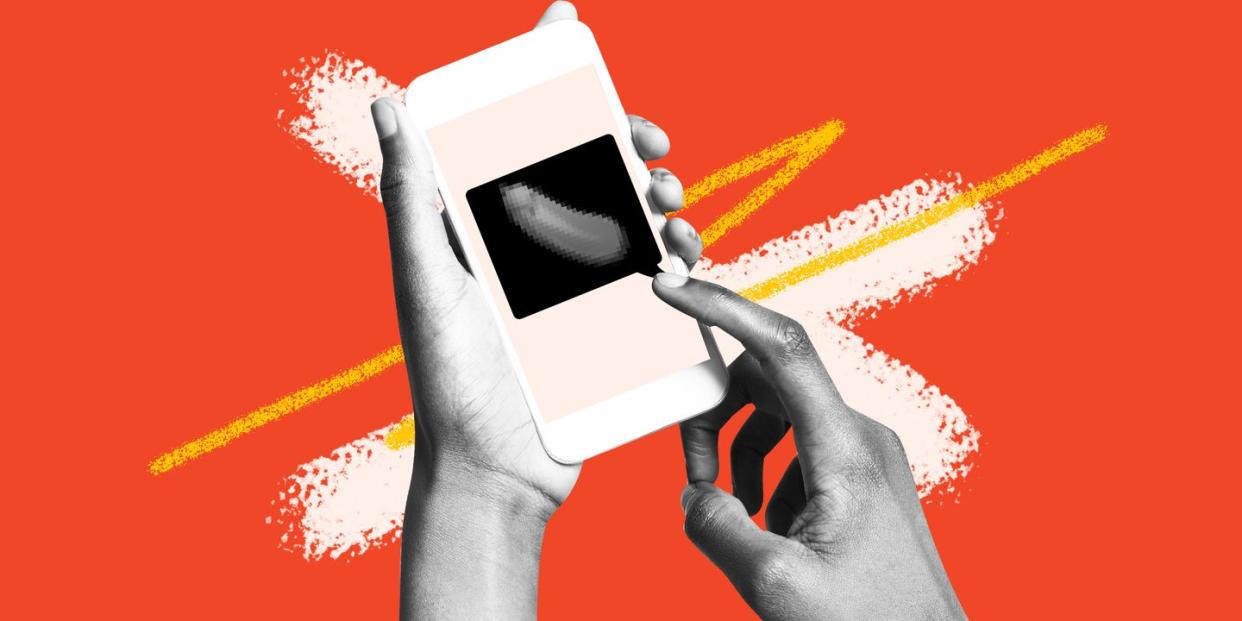Hallelujah: Unsolicited Dick Pics Might Soon Be Illegal

The first time I received an unsolicited lewd photo was via email, after my personal information was published on a white nationalist website. At Bumble, the app I founded, we had partnered with the Anti-Defamation League to ban all forms of hate on our platform, and the white nationalist site basically called on its readers to come after us. I was bombarded by dozens of photos of male genitalia. It was horrifying.
Less than a year later, when we also banned photos of guns, I got a new barrage of lewd photos: emails and DMs featuring pictures of guys’ weapons next to their you-know-whats with captions like “I’m going to fire both my guns at you.”

As disgusting as this was, it wasn’t surprising. I’d been hearing about this issue for years from girlfriends and coworkers who would walk through public places and get lewd photos AirDropped onto their phones and even from a close family friend who was just a teenager when she got her first unsolicited photo from a boy her age. Seventy-eight percent of millennial women have received an unwanted sexual photo. When they’re sent through Bumble, we ban those users right away-but that’s not enough to deter them from doing it in other ways.
I hated that there was no real accountability, and that this digital world we spend all our time in is basically a society with no rules. So about a year ago, my team and I started working with lobbyists and passionate state representatives-both Republicans and Democrats-in Texas, where we’re based. Our goal was to make sending unsolicited lewd photos illegal, whether you do it via text, AirDrop, or dating apps. If we succeed, sending these photos will become a Class C misdemeanor, like speeding tickets.
A lot of people say, “What’s so bad about a photo? Who cares, just block it, delete it.” But they need to understand that this is a form of abuse and sexual harassment. It’s not a joke, and it’s not funny. These photos make women feel violated and degraded in places they thought were safe, like their own homes or on their commute to work. We also know from tons of anecdotal evidence that this kind of behavior can lead to more extreme forms of verbal and physical abuse.
In March, I testified on this issue in front of Texas state lawmakers. I’ve done so much public speaking, but this was probably the most nervous I’ve ever been. This is just so important; it’s about women’s safety and security.
Luckily, the bill we worked on passed unanimously in the Texas House of Representatives and is now hopefully on its way to becoming law in our state. Meanwhile, other states, like New York, have proposed similar legislation, and we’ve gotten feedback from people asking, “How can we do this in California? Can we do this in Hawaii? ” Our goal is to ban unwanted lewd photos throughout the whole country.
We also need technological solutions. That’s why my founding and active business partner, Andrey Andreev (who I've been building Bumble with since day one), has developed a remarkable new feature called the Private Detector that can detect lewd photos with 98 percent accuracy. Starting in June, we’ll be able to alert Bumble users that a photo is likely inappropriate and give them the option to delete and block in our app before even viewing it.
I know that we will never stop to these photos entirely. But when you know there’s a consequence, it does make you second-guess your actions. In the real world, we have laws about exposing yourself to people who have no interest in seeing you naked. It’s long past time we had these in the digital world too.
('You Might Also Like',)

